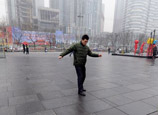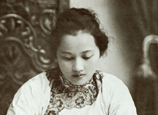
Edited and translated by Liang Jun, People's Daily Online
By the end of 2012, China's M2, a broad system that measures money supply that covers cash in circulation and all deposits, amounted to 97.42 trillion yuan, making it the largest in the world, according to statistics released by China's Central Bank on January 10.
Climbing fast in recent years, the figure is close to a quarter of the global money supply, 1.5 times the total M2 in the US, 4.9 times the amount in the United Kingdom, 1.7 times more than in Japan and 200,000 trillion yuan higher that the M2 in the euro area.
In 2000, China's money supply stood at 13 trillion yuan. It was less than 50 trillion yuan in 2008. However, after the outbreak of global financial crisis, the figure increased by one trillion yuan year-on-year since 2009 and soared in recent years.
Objectively, we should not attribute this to a certain department but to the consequences of an unbalanced economic development and double surplus in international balance of payment over a long period of time.
Clearly, large amounts of money accumulation in a short period of time will have negative effects on the economy. The previous large scale of excessive issuances of U.S. dollars has caused serious issues to its global holders. John Bowden Connally, Jr, the Secretary of the US Treasury under President Richard M. Nixon, has told a group of European finance ministers worried about the export of American inflation that the dollar "is our currency, but your problem".
From a medium and long-term perspective, a more serious consequence could be that the fast rise of money stock will completely expose the economic and monetary tendencies of China. The ratio between China's money supply and GDP is close to 190 percent, increasing at an accelerating rate, which shows that the investment efficiency decreased significantly, but also revealing that the development mode of using capital to boost growth is going into blind alley.
Read the Chinese version: 中国成为全球货币存量第一大国说明什么
Source: Xinhua Net; Author: Wang Yu
















 'Wedding' for two old men in Beijing
'Wedding' for two old men in Beijing


![]()
